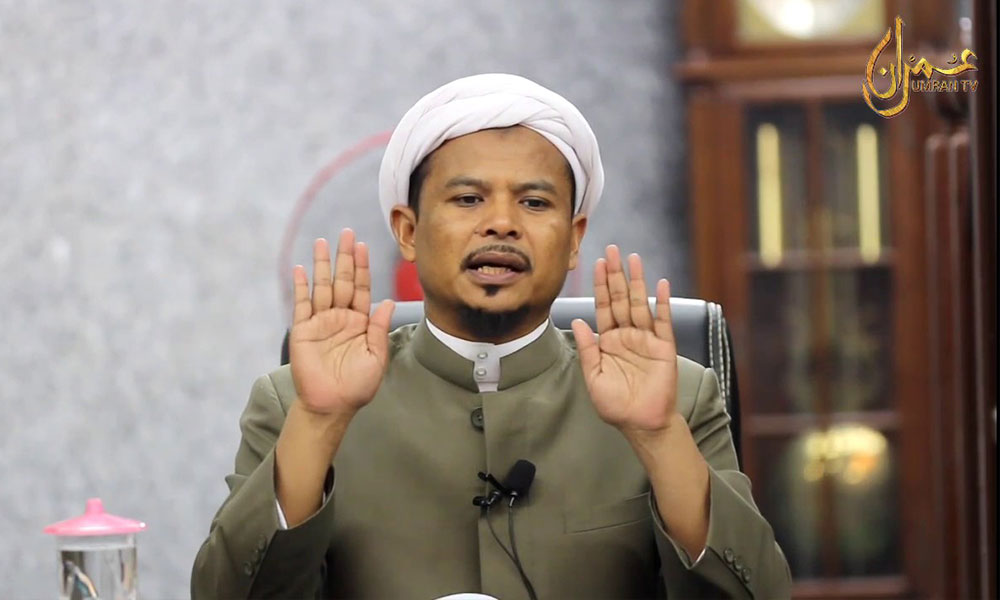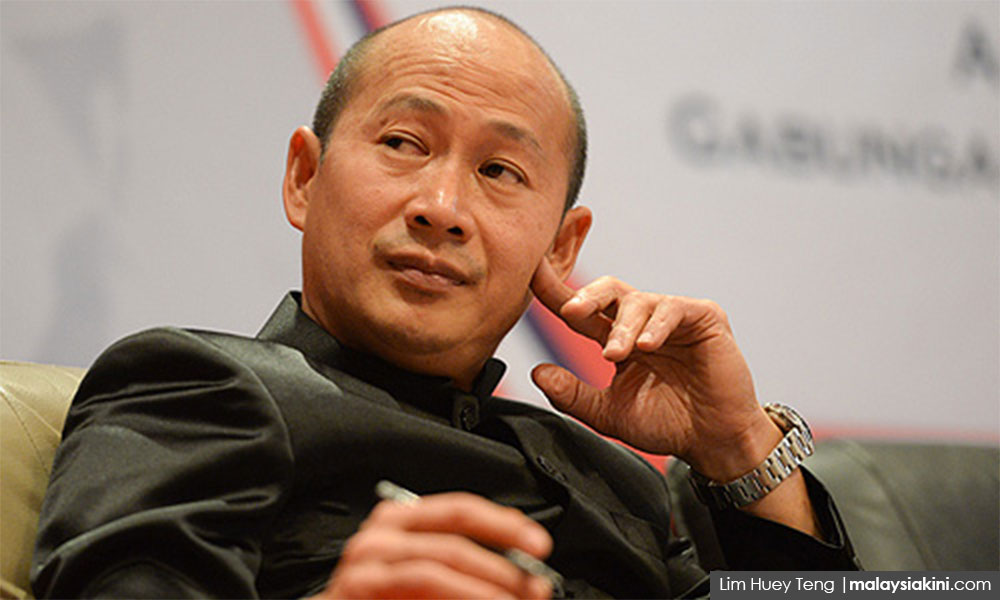
It is already 1am and Mum is still downstairs cleaning the living room. I ask her to go to bed, but she refuses. She says that the house must be without a speck of dust. We suspect Mum has mysophobia: an extreme fear of dirtiness. She spends most of her time cleaning the house. When my housekeeper so much as leaves a speck of dust on the vase, Mum chides her harshly. No one in the house can clean as she does.
Mum, like many traditional Chinese, is superstitious. To have a clean house is the only way to attract the God of Wealth to your house. Every morning my Mum opens the door wide and tie the curtains to the side to let the daylight in, welcoming the good energy into the house, as if saying, “Come see how clean I have made this house.” A clean house for Chinese New Year is the highest priority of all.
The Chinese in this country have never been known to be dirty. But preacher Zamihan Mat Zin doesn’t think so. Rationalising the Muslims-only laundrette, he claimed that the separation was necessary because the Chinese leave filth or ‘najis’ on their clothes.
To him, the Chinese do not know how to clean themselves after peeing and defecating. These dirty stains ought not be mixed with the prayer clothes of Muslims. The cure, he argues, is segregation.
Here Zamihan does two things: using the Chinese body as a site of derogatory description, and targeting the Chinese body with insults and indignity, in an attempt to destroy it.

Defining the Other
A scan through history tells us that the racial body is often used as a site for the most convenient target for inflicting terror, pain, and humiliation. Early colonial masters used pathological stereotypes to define each race, like blacks as violent, uncivilised, and backward. The purpose of doing so is to outline the parameters of “them” who are inferior and “us” who are superior.
For most of the 20th century, African Americans were described as dirty and unhygienic, so that governors could segregate them from the white population using the excuse of disease prevention. Laws prevented African Americans from using the same restrooms, drinking fountains, and swimming facilities as the whites.
At the time, African Americans being dirty was simply accepted as “truth” or “common sense.” Just like how Zamihan is now insisting that calling the Chinese dirty is simply a reflection of ‘kebenaran’. Zamihan’s “truth” implies that the Chinese are an inferior group of people, who do not even know how to do the most basic human activity of cleaning themselves, ergo, they must be the lowest form of people.
Once this is accepted as truth, the next sensible option is to segregate the dirty population of the Chinese from the Muslims. This is the first phase. Gradually, when we are so used to segregation for artificial necessity that it is accepted as common wisdom, the elimination of the Chinese becomes second nature. In this way, the Chinese body is effectively destroyed.
This is in spite of the fact that the allegations made by Zamihan were completely baseless and absurd. There is absolutely no evidence that the Chinese are dirtier than other races, and in any case, any form of generalisation based such a large group of people is bound to be circular and myopic.
If we take Ridhuan Tee Abdullah’s explanation that Chinese Malaysians might be dirtier because they only use toilet paper instead of water after defecation, this is similarly fallacious.

Extending his argument to its logical conclusion, most people in this world would be dirty to him, since Malaysia is one of the very few countries in the world that actually washes with water instead of toilet paper after defecation. Surely, this cannot be accepted as a sound justification.
Basal instincts
What is on show here are Zamihan’s prejudicial instincts, a toxic mix of rumour, propaganda, and a flawed memory from a presumably isolated life. Prejudice is a comfortable haven for the ignorant.
Being surrounded with only people who are like him, Zamihan treated the Chinese race as a stranger to be feared. Without opportunities to enquire, understand, and empathise, he has chosen to impose moral subjectivities from the outside. He has chosen to clothe fiction as truth.
While I am certainly disappointed, I am also aware of the cruel irony that Zamihan might just be the product of the very segregated society he is championing. The cure he is looking for is the cause of his sickness.
But in the darkness, there is often light. First, I am pleased to see that there was no unbridled violent reaction from the Chinese save for online commentaries. This is either a reflection of the numbness from being persistently scapegoated or the moral high ground of choosing to rise above this petty intolerance. I hope it’s the latter.

The second thing that made me proud was the image of the Chinese boy helping an old Muslim man to the mosque on a rainy day. The picture spread like wildfire online, symbolising the mass resistance of people against intolerance and racism. It is a rejection of absurdity, and a reclamation our Malaysian values.
When my family heard what Zamihan said, we were of course infuriated. But like most Chinese Malaysians, we have learned to cope. We don’t expect anyone to speak up for us; we expect the usual deafening silence from politicians. That is, until the Johor sultan came to our defence with a swift and strict admonishment of Zamihan.
The Johor monarchy has long been a believer of racial empathy and the strength of a multiracial society. I am always reminded that Permaisuri Raja Zarith Sofiah Almarhum Sultan Idris’ Oxford dissertation was on Chinese Malaysians, and she knows how to speak Mandarin. And this tradition of the Johor monarchy has been persistent for centuries.
I came home early that day to watch the news with my Mum. She turned to me and said: “I like the Johor sultan.”
JAMES CHAI wishes Happy Deepavali to those who are celebrating. May light shine over darkness. He tweets at @JamesJSChai.- Mkini



No comments:
Post a Comment
Note: Only a member of this blog may post a comment.